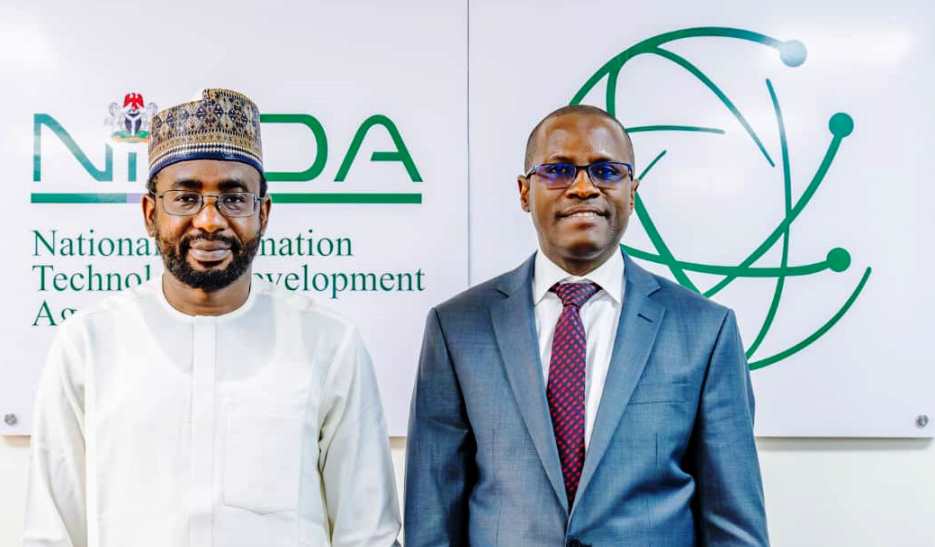The pressures faced by married women in Nigeria and across much of West Africa often stretch beyond the wedding day, as illustrated by a viral social media post from a Nigerian woman who shared her ongoing struggle with so-called ‘womb watchers’—individuals who closely observe and comment on a woman’s reproductive timeline. Since saying “I do,” this woman has found herself under constant scrutiny, unable to enjoy even a moment’s peace from the expectations and invasiveness surrounding motherhood.
In a series of posts on https://x.com/yabaleftonline, she described how an overwhelming number of people, including acquaintances and even relative strangers, seem fixated on any sign that might indicate pregnancy. These ‘womb watchers’ allegedly monitor her appearance, conversations, and even her online posts for clues, frequently pressuring her with questions about when she’ll have a child.
She voiced her frustration at the endless speculation she endures simply because she is married but does not (yet) have children—a reality that is familiar to many Nigerian and West African women.
The pressure has escalated to such an extent that every message or health-related social media post is hurriedly interpreted as evidence of pregnancy. For example, the woman recalled making a statement about her long-running health issues with hyperacidity and acid reflux, only to be asked immediately if she was experiencing pregnancy symptoms. Rather than receiving empathy, her disclosures about health struggles have often been met with suspicion and intrusive questions.
She also pointed out that these persistent assumptions ignore not only her personal timeline but also the real health conditions and emotional boundaries she tries to set.
Despite clearly communicating that having children is a “secondary plan” in her marriage, and sharing her own fears and hesitations about pregnancy, people continue to prioritize their expectations over her boundaries and comfort.

Her candid revelation has sparked widespread online discussion. Many users, especially women, have echoed her sentiments, criticizing what they describe as a deep-rooted societal obsession with equating a woman’s value to motherhood—often disregarding personal health, mental well-being, and individual choice.
Understanding the ‘Womb Watcher’ Phenomenon in West Africa
In many Nigerian and West African societies, marriage is commonly seen as the gateway to starting a family, and the expectation that a woman should conceive soon after tying the knot is deeply ingrained. Friends, family, neighbors, and even colleagues may feel entitled to inquire about—or speculate on—a married woman’s fertility status, sometimes with little regard for privacy or sensitivity. According to social anthropologists such as Dr. Funke Olaseni of the University of Ibadan, “There is a strong cultural belief that a married woman is incomplete until she becomes a mother. This belief has not only put undue pressure on women but can also impact their mental health and marriage stability.”
The Consequences: Emotional, Social, and Health Impacts
The consequences of this societal fixation are wide-ranging. Many women report feeling increased anxiety, depression, and isolation as they struggle with repeated questioning or unsolicited advice. Infertility, for instance, is often stigmatized rather than understood as a medical issue. “We need to move conversations around fertility into a space of support,” says Ada Obi, a marriage counselor based in Lagos. “The pressure is not only unfair but harmful.”
This “womb watcher” culture also affects men, although women bear the brunt of the societal gaze. Husbands often report feeling secondary pressure from family or community, further straining relationships. According to a 2022 World Health Organization (WHO) report, the emotional burden of infertility or delayed childbirth can be substantial, especially where support systems are weak or social expectations remain rigid.
Challenging Societal Norms: Local Voices Speak Out
- Bolanle, 29, from Ibadan: “My aunt would visit every month asking if I had ‘good news.’ It became so uncomfortable I avoided family events.”
- Emeka, 34, in Lagos: “When my wife and I decided to wait, the questions never stopped. Even our church group kept dropping hints.”
- Dr. Grace Addo, a Ghanaian psychologist: “This issue is not unique to Nigeria. In Ghana, women frequently report similar pressures, which can have severe mental health implications.”
How Comparisons Offer Perspective: Nigeria, Ghana, and Beyond
While this expectation is prominent in many African cultures, other countries are gradually shifting towards more individual autonomy and privacy around issues of marriage and childbirth. In South Africa, for example, some advocacy groups have successfully campaigned for less judgment and greater support for various paths to family, whether by choice or due to medical necessity.
Potential Reforms and the Way Forward
Increasing public awareness, encouraging open conversations about fertility, and recognizing personal boundaries are key to addressing the issue. Individual stories—such as the viral tweet in question—are helping to spark these dialogs, but experts say deeper cultural education is still needed. Policymakers and NGOs are also being called on to provide better counseling resources and to crack down on discrimination linked to reproductive status.
Organizations such as the Nigerian Psychological Association have started offering community talks and advocacy campaigns aimed at reducing the stigma and fostering empathy for couples facing fertility challenges—including those who simply wish to wait.
Counterpoints: Changing Attitudes, but Old Habits Persist
It’s important to acknowledge that attitudes are slowly changing, especially among younger Africans and in urban settings. More Nigerians and Ghanaians are defending their right to privacy and asking others to stop intrusive questioning. However, as experts note, long-standing habits and cultural expectations remain deeply rooted, meaning generational shifts will require persistent advocacy and education.
The Global Picture: A Shared Experience
This ongoing conversation mirrors global debates about body autonomy and reproductive rights. Women everywhere—from Lagos to London—are demanding respect for their choices and a more supportive approach to family planning. International groups like UN Women have emphasized the importance of respecting women’s privacy, and stories like the one that’s gone viral in Nigeria help shape this global narrative.
What Can Be Done? Practical Advice for All
- For families and friends: Offer emotional support instead of unsolicited questions or advice. Respect privacy and boundaries.
- For women under pressure: Reach out to support groups or counselors to build resilience and share experiences.
- For communities: Challenge norms that tie a woman’s worth solely to motherhood, and promote positive, inclusive values.
Conclusion
The social media uproar around this Nigerian woman’s post highlights a much larger conversation that is long overdue—not only in Nigeria, but across West Africa and in communities worldwide. While social change takes time, opening up about these issues is a vital step toward a more understanding, supportive society. What’s your experience or perspective on this issue—have you or someone close to you felt similar pressures? Join the conversation below and let your voice be heard.
Have you faced similar pressures or have a story to share about societal expectations around marriage, fertility, or personal boundaries? We want to amplify your voice. Email us at story@nowahalazone.com to have your experience featured or to discuss story sales. For general support, reach out at support@nowahalazone.com. Join our community discussion—drop your thoughts in the comments below!
Stay connected with us for more relevant updates: Follow on Facebook, X (Twitter), and Instagram.
Your story matters. Reach out and let’s build a stronger, more understanding community together.










